Life Below Water: How to support SDG #14 with your Gexsi search
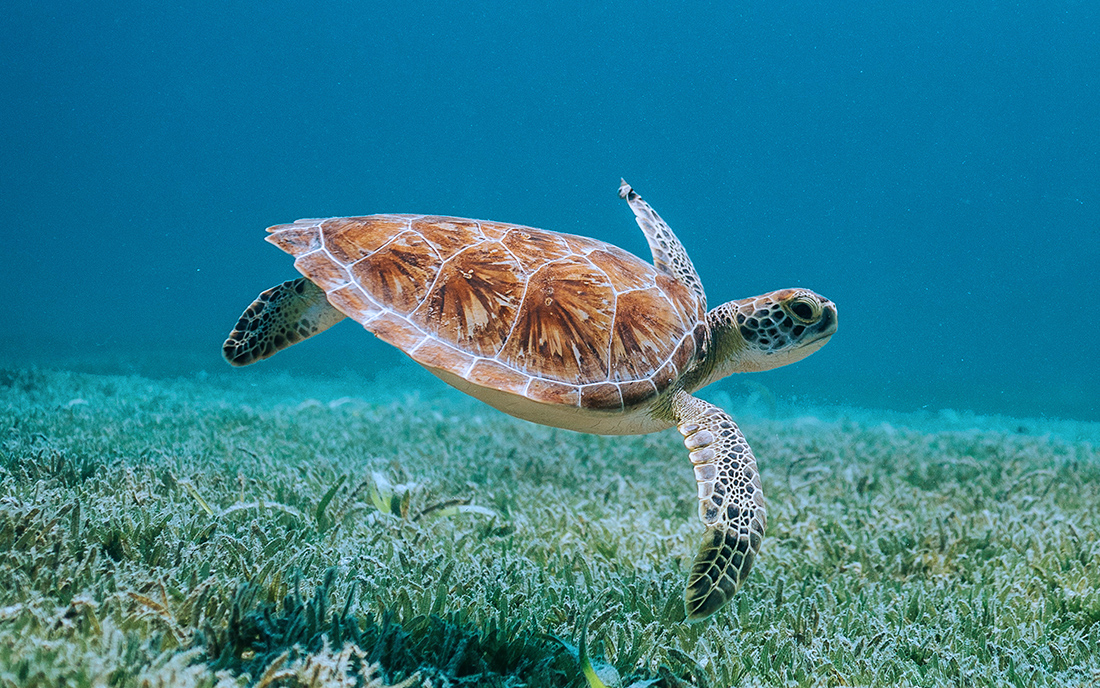
With Gexsi, the search engine for a better world, you automatically contribute to protecting our oceans. We do this by regularly supporting initiatives that are committed to SDG 14 – Life Below Water.
Our planet is covered by a whopping 70 percent of the oceans. But only a fraction of our oceans are protected, and parts of valuable ecosystems such as coral reefs, seagrass beds, and mangrove forests on our planet have now been destroyed. As part of the Sustainable Development Goals, the United Nations has agreed to halt these developments and take decisive action against them. In SDG #14 – Life under Water, the United Nations explicitly focuses on our oceans. Fortunately, there are a lot of initiatives in the world of social enterprises that are passionately committed to preserving our oceans every day. This article will introduce you to five of these social businesses. In fact, these are all organizations that Gexsi has supported in the past, or will soon, with the help of your searches. So by choosing to use our Gexsi search engine, you are also helping to protect our oceans today.
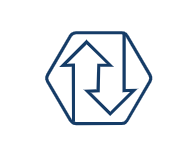
Replace Plastic makes you an anti-plastic waste campaigner
The “Replace Plastic App” developed by the association “Küste gegen Plastik” e.V. on the German North Sea coast uses the power of consumers to promote a circular economy. It does this by turning each and every one of us into an anti-plastic waste campaigner. Because in the meantime, our world – not only on land but also on the water – is full of plastic. Here’s how it works: Simply scan the barcode of the products that have an unnecessary amount of plastic packaging with the app in the supermarket. The association then automatically sends an email to the manufacturer asking them to rethink their packaging design. The initiative has been a huge success. Almost two million packages have already been scanned; a number of manufacturers have been contacted and have now responded by making their packaging more environmentally friendly. Under the name “Andersmacher,” the social enterprise lists the retailers and companies that have taken the plastic problem to heart. The result is that other companies are motivated and inspired to do the same as their competitors. We at Gexsi support the association from St. Peter Ording with an annual membership.


Glassic establishes reusable bottle systems in Southeast Asia
“Glassic” is a social impact venture by students at the Technical University of Munich, which was funded as part of the Enactus initiative. The goal: to establish the concept of reusable bottles in Southeast Asia. The project started with an initial pilot project on the island of Ko Kut in the Gulf of Thailand. With the help of the first 18,000 returnable bottles, the aim is to save 66 tons of CO2 every year. In addition, the young company regularly organizes beach clean-ups and creates better awareness of the problem by actively involving and engaging the local population in their business. “Glassic” has won the prize money of our Gexsi Impact Challenge Award in the past.

Plasticpreneur makes mobile machines for plastic recycling
The social startup “Plasticpreneur” from Lower Austria offers solutions for recycling plastics on a small scale. With their mobile machines, it is possible to start plastic recycling from anywhere. This is so important in a world like ours, where plastic has virtually become an indispensable part of everyday life because degradation is proving problematic. There is now a huge amount of plastic waste on land as well as in the water. It is, therefore, all the more important to reuse and reprocess plastic as often as possible. A lack of recycling facilities, little know-how, and a low level of awareness means that currently only nine percent of plastic waste worldwide is recycled. The mobile machines of “Plasticpreneur” are now used in more than 55 countries. Thanks to your searches, Gexsi was able to support the social startup most recently by sponsoring a mobile machine for a project that was in need of it.
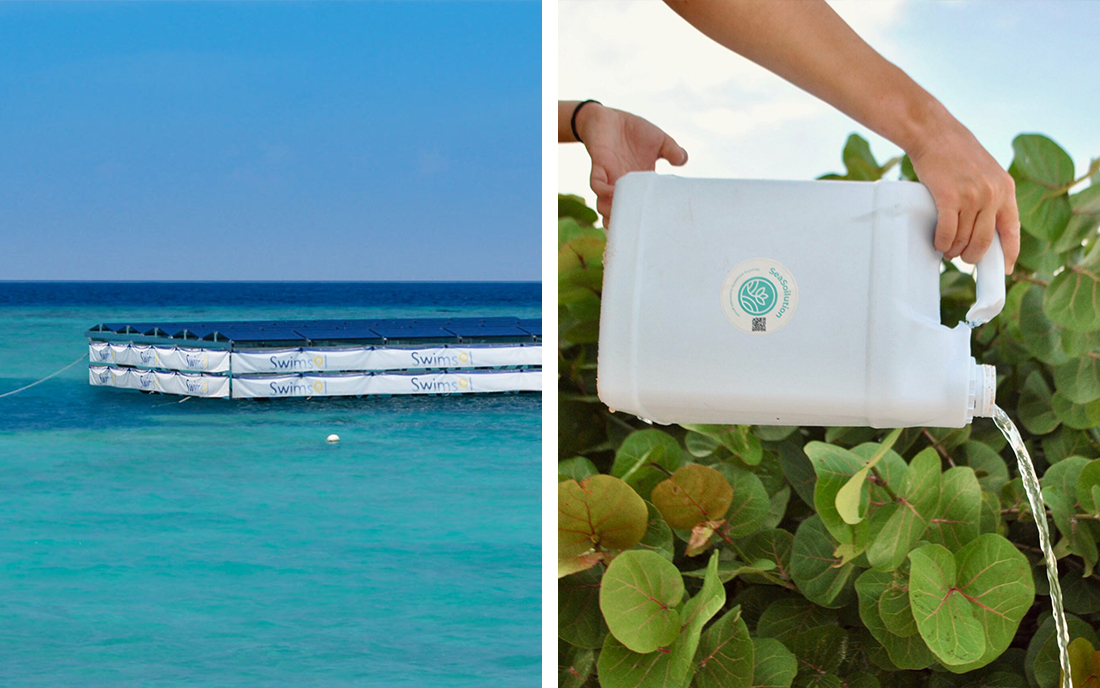

Protecting Maldivian coral reefs with Swimsol’s floating solar arrays
“Swimsol” develops floating solar plants that supply islands in the Maldives with clean energy and replace the existing diesel generators – and this, without additional land consumption. In this way, the Viennese company not only contributes to climate protection but also reduces the risk of oil spilling into the sea during transport and destroying the valuable local coral reefs. Even if in the first step mainly vacation resorts profit from the technology, there are prospectively manifold possibilities to improve the living situation of people in remote regions in many parts of the world with the help of floating solar plants. Gexsi’s support for the young company came from our financial participation in the crowdinvestment campaign. The campaign, which ran on the Econeers platform, was successfully funded in May 2019.
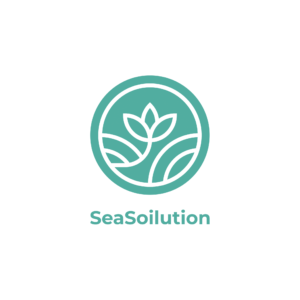
SeaSoilution upgrades harmful algae to a bio-fertilizer
The “SeaSoilution” project fishes the harmful brown algae species Sargassum from the sea and revalues it via an upcycling process. The algae are found primarily in the tropical and subtropical Atlantic, where they wash up on the coast or cause shallow waters to overturn. Through the upcycling process of “SeaSoilution”, the brown algae can be used as biofertilizers in agriculture. Currently, the young company, which was founded in 2019, is involved in the Dominican Republic. In the long term, however, an expansion to other countries is also conceivable. The organization recently won first place in the Enactus Startup Accelerator in the Innovation category. “SeaSoilution” is a small sneak preview of one of our projects, which we want to support financially in the first quarter of 2022 with the help of your searches. Check out our project page soon, where you can always find out about our currently supported projects.
The 17 Sustainable Development Goals (SDGs) are a roadmap for the future that the global community adopted in 2015. They are addressed to everyone: governments worldwide, but also civil society, the private sector, and academia.
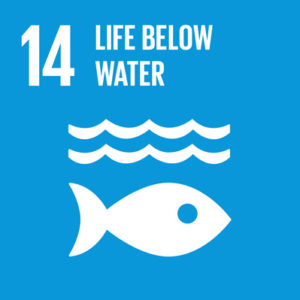
Goal 13 – Life Below Water
In its 2030 Agenda, the international community has enshrined the following sub-goals for SDG #14 – “Life Below Water”:
- Significantly reduce all types of marine pollution.
- Sustainably manage and protect marine and coastal ecosystems and take action to restore them so that the oceans become healthy and productive again.
- Reduce ocean acidification as much as possible.
- Sustainably manage fish stocks and end overfishing, illegal, unreported, and unregulated fishing, and destructive fishing practices.
- Designate at least 10 percent of coastal and marine areas as marine protected areas and better manage them.
- Prohibit certain forms of fishing subsidies that contribute to overcapacity and overfishing.
- Increase the economic benefits to small island developing states and least developed countries resulting from the sustainable use of marine resources.
Become part of a community, which positively changes the world!
Set a sign and make Gexsi your search engine!
![]() Gexsi – the search engine for a better world
Gexsi – the search engine for a better world
Your search generates money for projects which make the world a better place.


